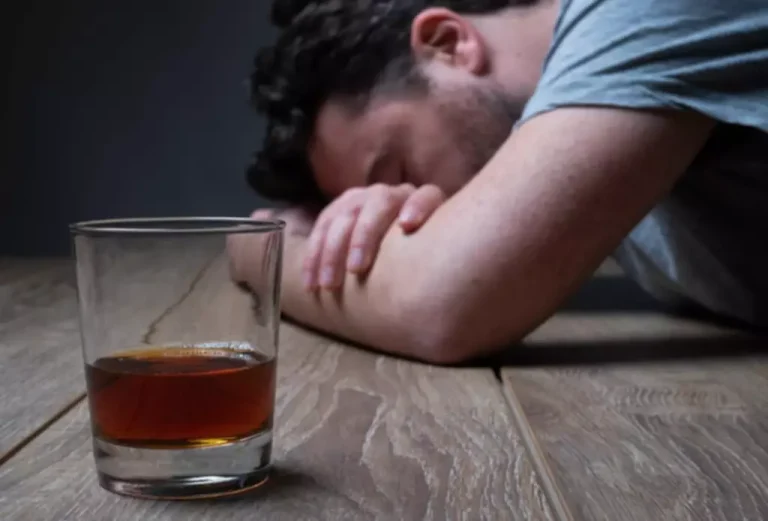
If these tips don’t resolve brain fog, a healthcare provider may address specific symptoms with medications like antidepressants or nonsteroidal anti-inflammatory drugs (NSAIDs), among others. Your provider will also discuss any side effects to look out for while you’re taking a new medication. Behavioral treatment programs are helpful for people who want to quit drinking. These programs involve working with a team of mental health professionals in a group and individual setting.
- See a doctor if your brain fog persists with other cognitive symptoms.
- When you decide to quit drinking alcohol, your body goes into a state of shock, leading to alcohol withdrawal.
- Seniors should be patient and persistent as they work towards improving their mental health.
- Exploring the effects of alcohol on the brain and the benefits of alcohol addiction treatment programs can also help.
Tips for Treating Hangover Brain Fog
Doing these exercises for just a few minutes can help get rid of brain fog and enhance your cognitive function. It’s no wonder that so many people report feeling foggy-headed after a night of drinking or even days after that. Brain fog from alcohol typically lasts for 8 to 24 hours after drinking.

What Contributes to Fuzzy Thinking?
While brain fog from alcohol is temporary and reversible, chronic alcohol abuse can lead to permanent cognitive impairment. Therefore, it is crucial to drink plenty of water when you are trying to relieve the symptoms of alcohol fog or brain fog in general. This is because sleep disorders can disrupt the quality and quantity of sleep, which can lead to fatigue and difficulty thinking clearly. If you drink alcohol regularly, you may experience withdrawal symptoms when you stop drinking or reduce your alcohol intake. A recently released study by the RAND research group revealed the many ways that sleep deprivation negatively affects brain function. Hydration levels of the body can affect the concentration of alcohol in the bloodstream and how quickly it exits the system.
Recognize your addiction patterns
- Don’t push yourself to do too much when feeling foggy after a night of drinking.
- Most people who have dealt with alcohol addiction have some idea of what brain fog feels like because it is very similar to how you might feel after a round of heavy drinking.
- When he’s not working, he takes pleasure in spending quality time with his wife and two children, along with staying active through exercise and cycling.
- They can help you find treatment options to reduce its impact on you.
Dr. Raman’s four decades spent caring for patients of all ages shines through in his work at WelbeHealth. Participants and families know they can trust him as an experienced, knowledgeable provider. In addition to primary care, his medical specialties include general and vascular surgery. This hands-on vascular expertise helps him assist seniors in managing conditions that affect arteries and veins. Becky Kuhn has been working with seniors since 2011 and is dedicated to providing quality medical care and improving the health of her patients. She takes a collaborative approach ensuring they have the best quality of life.
Symptoms of Alcohol Withdrawal: Timeline and Signs of Danger
They then develop healthy thought patterns that help them cope with stress and refuse alcohol. A person should check themselves into an alcohol detox program and receive medication to wean alcohol brain fog themselves off drinks. While they are in the program, they should drink plenty of water and eat nutritious food. But someone can make a full recovery and start withdrawing from alcohol.
What causes alcohol brain fog?
Often, it sneaks up on you during alcohol withdrawal and recovery, causing difficulty in concentrating, memory problems, and a feeling of being mentally sluggish. Brain fog is that fuzzy, forgetful feeling that can happen for various reasons. Knowing the cause of your symptoms can help determine if you need specific treatment or lifestyle and medication adjustments to help with brain fog. When your sleep cycle is disrupted, it can lead to feelings of fatigue and cognitive impairment the following day. Recent research has shown that drinking alcohol can impact the production of certain neurotransmitters in the brain, leading to brain fog and other cognitive symptoms. The duration of brain fog can vary based on the amount of alcohol consumed, your body’s tolerance, and how well you managed your hydration and nutrition while drinking.
Why does alcohol cause brain fog?

Prior to joining WelbeHealth, she founded a home health company and taught gerontology at McMaster University in Canada. She completed her undergraduate training in gerontology at McMaster University. When he’s not working, he takes pleasure in spending quality time with his wife and two children, along with staying active through exercise and cycling. Dr. Chen creates an individualized plan of care for each person, taking into account their caregivers, their social lives, and other factors that go into their care outside of purely medicine. She approaches each patient as a whole person and ensures every aspect is being treated.
- Hydration levels of the body can affect the concentration of alcohol in the bloodstream and how quickly it exits the system.
- When not working at WelbeHealth, Dr Robinson enjoys time with his family and hitting the occasional ace on the tennis court.
- If you aren’t sure where to start, plenty of online recordings provide simple guided meditations to slow racing thoughts and encourage internal peace.
- In addition to physical exercise, it’s also important to exercise your brain.
Common hormonal imbalances that can cause brain fog include low thyroid hormone levels (hypothyroidism) and high cortisol levels (adrenal fatigue). Liver damage can lead to a build-up of toxins in the blood, which can cause a range of symptoms, including brain fog. Use of this site constitutes acceptance of Sober Recovery’s “Terms of Use”, “Privacy Policy”, “Cookie Policy”, and “Health Disclaimer”. The material on this site is for informational purposes only, and is not a substitute for medical advice, diagnosis or treatment provided by a qualified health care provider.


Clinically, Warren has developed a therapeutic skillset that utilizes a strengths-based perspective, Twelve Step philosophies, Cognitive Behavioral Therapy and Motivational Interviewing. In addition to these therapies, medication and lifestyle changes can also be beneficial in addiction treatment. Medications such as Naltrexone and Acamprosate can help reduce cravings and prevent relapse, offering a powerful tool in the fight against addiction. These resources can all be great tools for treating alcohol addiction and brain fog.